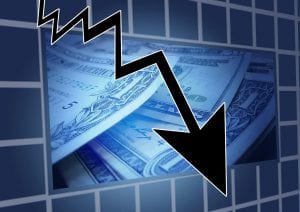Which of the Situations Describes a Bandwagon Effect Caused by a Lack of Confidence in Markets?
April 8, 2024
Introduction: When Lack of Confidence in Markets Leads to Herd Mentality
In investing, the phrase “Which of the situations describes a bandwagon effect caused by a lack of confidence in markets?” is a thought-provoking question that highlights a critical phenomenon: the bandwagon effect. This effect occurs when investors follow the crowd, adopting certain behaviours or strategies simply because many others do the same, often disregarding their analysis and judgment. This article will explore situations that exemplify how a lack of market confidence can lead to the bandwagon effect and discuss the importance of independent thinking and analysis in investment decision-making.
Market Crashes and Panic Selling
One of the most striking situations that describes a bandwagon effect caused by a lack of confidence in markets is the occurrence of market crashes and the subsequent panic selling. During such events, investors often lose faith in the stability and recovery potential of the market, leading to a contagious fear that spreads like wildfire. As more and more investors begin to sell their holdings in a frenzy, others follow suit, fearing further losses if they don’t act quickly.
The 1987 Black Monday crash is a prime example of this bandwagon effect. On October 19, 1987, the Dow Jones Industrial Average plummeted by 22.6% in a single day, triggered by a combination of factors, including program trading and market psychology. As investors witnessed the rapid decline in stock prices, many lost confidence in the market’s ability to recover, leading to a massive sell-off. This panic selling only exacerbated the decline as more investors jumped on the bandwagon, creating a vicious cycle.
Bubbles and Irrational Exuberance
Another situation that highlights the bandwagon effect driven by a lack of confidence in traditional market valuation is the formation of bubbles and the irrational exuberance accompanying them. During periods of market euphoria, investors often disregard fundamental analysis and jump on the bandwagon of investing in assets with inflated prices, believing that they will continue to rise indefinitely.
The dot-com bubble of the late 1990s is a classic example of this phenomenon. As internet companies gained popularity, many investors lost confidence in traditional valuation metrics and instead focused on metrics such as “eyeballs” and “click-through rates.” The fear of missing out on potential gains drove the bandwagon, with investors pouring money into tech stocks, regardless of their fundamentals. When the bubble burst, those who followed the crowd suffered substantial losses.
Herd Mentality in Times of Economic Uncertainty
Economic uncertainty can also contribute to the bandwagon effect, as investors lose confidence in the market’s ability to weather the storm. During such times, investors may be more susceptible to following the crowd, believing there is safety in numbers. This herd mentality can lead to irrational investment decisions, such as panic selling during market downturns or investing in popular assets that may not align with an individual’s investment goals and risk tolerance.
The COVID-19 pandemic-induced market turmoil in 2020 showcased this bandwagon effect. As the virus spread globally and economies shut down, many investors lost confidence in the market’s ability to recover, leading to a sharp sell-off in stocks. As fear gripped the market, some investors followed the crowd and sold their holdings, even if it meant realizing significant losses. Conversely, when the market began to rebound, the bandwagon effect manifested in the form of investors rushing to buy stocks, often without conducting thorough research or considering the long-term implications of their decisions.
The Importance of Independent Thinking and Analysis
Investors must prioritise independent thinking and analysis to avoid falling victim to the bandwagon effect caused by a lack of confidence in markets. Rather than simply following the crowd, investors should take the time to research and evaluate investments based on their own goals, risk tolerance, and understanding of market fundamentals.
One way to foster independent thinking is to seek out diverse sources of information and opinions. By exposing themselves to various perspectives, investors can better understand market dynamics and potential investment opportunities. This approach can help investors avoid the echo chambers that often form around popular investment ideas and can contribute to the formation of bandwagon effects.
Additionally, investors should be willing to stand apart from the crowd when necessary. This can be challenging, particularly during periods of market upheaval when emotions run high. However, investors can potentially avoid the pitfalls associated with herd mentality by having the courage to make decisions based on their analysis, even if it means going against the grain.
Breaking Free: Escaping the Clutches of the Bandwagon Effect
“Now, instead of fixating on the question of ‘Which of the Situations Describes a Bandwagon Effect Caused by a Lack of Confidence in Markets?’ Let’s explore strategies to evade this detrimental trend.”
“The Power of Investing” emphasizes critical thinking and independent analysis. Socrates championed the examined life, and this philosophy is crucial to investment decisions. Succumbing to the bandwagon effect can lead to poor investment choices simply because others are doing the same. The bandwagon effect refers to the tendency for people to adopt certain behaviours, styles, or attitudes simply because many other people are doing the same. In investing, this often manifests as the urge to buy a particular stock or follow a specific investment strategy because it’s popular rather than because it aligns with one’s investment goals and risk tolerance.
Avoiding the bandwagon effect requires a commitment to independent thinking and a willingness to stand apart from the crowd. This can be challenging, particularly in market euphoria, when it seems everyone is making money from a particular investment. However, history has repeatedly shown that popularity alone is not a reliable indicator of an investment’s merit. During the dot-com bubble, for example, many investors jumped on the bandwagon of investing in internet companies, regardless of these companies’ fundamentals. When the bubble burst, these investors suffered substantial losses.
More recently, the rise of meme stocks and the GameStop frenzy demonstrated how the bandwagon effect, amplified by social media, can lead to wild price swings and potential losses for those who jump in without a clear understanding of the risks. To avoid the bandwagon effect, investors need to research, maintain a long-term perspective, and have the courage to make decisions based on their analysis, even if it means going against the crowd.
Conclusion: Which of the following situations describes a bandwagon effect caused by a lack of confidence in markets?
The bandwagon effect, caused by a lack of confidence in markets, can manifest in various situations, such as market crashes, bubbles, and economic uncertainty. When investors lose faith in the market’s ability to function effectively or recover from downturns, they may be more susceptible to following the crowd, leading to irrational investment decisions.
To navigate these challenges and answer the question, “Which of the situations describes a bandwagon effect caused by a lack of confidence in markets?” investors must prioritize independent thinking and analysis. By conducting their research, seeking out diverse perspectives, and having the courage to stand apart from the crowd when necessary, investors can make more informed decisions aligned with their individual goals and risk tolerance.
Ultimately, the key to successful investing lies in the ability to identify profitable opportunities and the capacity to resist the allure of the bandwagon effect. By maintaining confidence in their judgment and staying true to their investment principles, investors can weather market upheavals and achieve long-term financial success.
Exceptional Reads for the Curious Mind

Mob Rule Game: Conquer Stock Market Mayhem for Investing Success

SOS: Distress Signals from the American Economy in Trouble
Alarming Surge in Sexual Violence in Germany

Embracing Investing Psychology: Profiting from Negativity

Corn-Eating Hamster Cannibals: Unveiling the Mystery

Food for Thought Meaning: Exploring Intellectual Depths

Fragile Foundations: Central Banks Assault on Strong Currency
Chinese Recession 2016: Examining Its Impact on the Markets

Unveiling Mass Hysteria Cases: Insights into Noteworthy Examples

What is a Hedge Fund: Beyond the Basics, Embracing Volatility

Home Run with Homeschooling Ideas
Americans with No Emergency Funds: Progress & Challenges

Hookah Lounge: A Captivating Experience for Relaxation and Socialization

Anxiety Sensitivity Index Does Not Support Stock Market Crash

Unveiling the Silent Threat: Women and Heart Disease
How to Make Money in the Stock Market Book: Unveiling Fatal Flaws
FAQ: Which of the situations describes a bandwagon effect caused by a lack of confidence in markets?
What is the bandwagon effect of investing?
Answer: The bandwagon effect in investing occurs when individuals follow the crowd, adopting certain behaviours or strategies simply because many others do the same, often disregarding their analysis and judgment.
How does a lack of confidence in markets contribute to the bandwagon effect?
Answer: A lack of market confidence can exacerbate the bandwagon effect by causing investors to seek safety in numbers and follow popular trends or investment strategies without considering their individual goals and risk tolerance.
What are some examples of situations that describe the bandwagon effect caused by a lack of confidence in markets?
Answer: Situations such as market crashes, bubbles, and economic uncertainty can exemplify the bandwagon effect driven by a lack of confidence in markets. During these times, investors may lose faith in the market’s ability to function effectively or recover from downturns, leading to irrational investment decisions driven by herd mentality.



